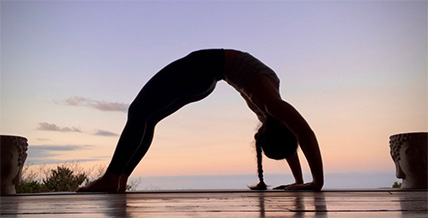Hatha Yoga

Hatha Yoga is a branch of yoga that focuses on physical postures, breathwork, and meditation. It is one of the oldest and most popular forms of yoga, with roots that date back thousands of years to ancient India.
The history of Hatha Yoga is a rich and complex one, with many different lineages and traditions:
The earliest written records of Hatha Yoga can be found in the Hatha Yoga Pradipika, a text written by the sage Swami Swatmarama in the 15th century. The Hatha Yoga Pradipika is considered one of the foundational texts of Hatha Yoga, and it outlines many of the practices and techniques that are still used today.
Hatha Yoga is also connected to the writing of Patanjali, an ancient Indian sage who is credited with writing the Yoga Sutras, a foundational text of yoga philosophy that outlines the eight limbs of yoga. While the Yoga Sutras do not specifically focus on Hatha Yoga, they provide a philosophical framework that has influenced many different forms of yoga over the centuries.
Hatha yoga is also credited back to Swami Sivananda. Swami Sivananda was a renowned Indian yogi who founded the Divine Life Society in the 1930s and is known for his teachings on Hatha Yoga.
Most commonly known for his contributions to Hatha yoga is B.K.S. Iyengar. B.K.S. Iyengar was a prominent Indian yoga teacher who developed his own style of Hatha Yoga, known as Iyengar Yoga which emphasizes precision, alignment, and the use of props to support the body in the postures.
The word “Hatha” is derived from the Sanskrit words “ha” and “tha,” which mean “sun” and “moon,” respectively.
Hatha Yoga is based on the principle of balancing opposing energies within the body, such as the masculine and feminine energies represented by the sun and moon.
By practicing the asanas, practitioners can improve their strength, flexibility, and balance, while also calming the mind.
Additional Benefits of Hatha Yoga Include:
- Increased flexibility and mobility: The movement and lengthening in hatha yoga can help to improve flexibility, mobility, and range of motion in the joints.
- Reduced stress and anxiety: Hatha yoga involves deep breathing techniques and gentle poses that help to calm the nervous system, reduce stress, and can assist with stress reduction.
- Enhanced sleep quality: Hatha yoga can help to promote restful sleep. By calming the mind and body, reducing stress, improving physical health, increasing mental clarity and focus quality of sleep can be improved.
Today, Hatha Yoga is practiced all over the world, in a variety of settings and contexts. Whether you’re looking to improve your physical health, reduce stress, or deepen your spiritual practice, Hatha Yoga offers a rich and diverse range of tools and techniques to help you achieve your goals.